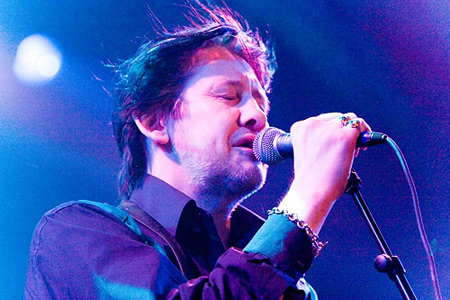
Okay, full disclosure time. My history with The Pogues has been a rocky one at best. I came onboard as a fan to their unique blend of Irish folk with punk sensibilities in 1994, a few years after the band fired singer and main songwriter Shane MacGowan. By this time, MacGowan had become a legend, not only for his legacy of timeless songs, but also for the amounts of alcohol and drugs he had consumed.
As a newcomer whom the music instantly captivated, I wanted to see this stuff live. The closest thing at the time was Shane MacGowan’s solo band, The Popes. But fortune had a way to keep me and Shane MacGowan separate. The first time he came to Philadelphia, I was too young to get into the show. Then I finally did see him in 1999, but MacGowan did not appear onstage until close to 1 AM, and I was too drunk to remember anything. The next chance was in 2000, but MacGowan never showed, inciting a near riot in the audience. I can still hear the shouts of “Fuck you, Shane MacGowan,” coming from some drunkard as the cops dragged him out. My last chance was the most pathetic. I was too sick to go, and my friend had to drive me to Times Square so I could sell my tickets to a scalper at a pathetic return.
I knew The Pogues had reunited in December 2001 to play some shows in England, but I had chalked them up there with Nirvana and Nick Drake as musicians I would never see in concert. In 2006, I was working in Vermont when I heard the Pogues would be coming to Boston, with MacGowan in tow! I searched for tickets, but it was too late. Sold out. I posted my sob story (very similar to the one above) on The Pogues message board. I had almost given up when a member of the band read my post and sent me two free tickets. Holy shit! The Pogues care about their fans.
Flash forward two years, and The Pogues are yet again playing a brief St. Paddy’s month tour of the eastern United States. Going into the show, the excitement of seeing The Pogues still vibrated within me, but something felt different. What had seemed like a once-in-a-lifetime opportunity in 2006 had become less unique. What’s March without a Pogues concert?
Whenever a band long defunct regroups for a ‘reunion’ tour, it is only natural to be dubious. Whether it be for filthy lucre or... filthy lucre, many old bands reform, dust off some old tunes, thrill a bunch of old farts, and make a mint in the process. But is there anything wrong with that?
MacGowan took the stage wearing a bowler hat, black suit jacket, and dark sunglasses. Never a good-looking man, you could hear the sold-out crowd go all atwitter at just how bad he looked now. Bloated, stooped, and barely coherent, MacGowan seemed like he had washed up on the Inner Harbor after a night out on the piss. The band burst immediately into “Streams of Whiskey,” and as soon as Spider Stacy’s tin whistle filled the club with its familiar melody, any hesitations about a half-assed set vanished. Next came “If I Should Fall From Grace With God,” and each song thereafter sounded like a greatest hit. MacGowan’s voice, always garbled and slurred, remained strong for most of the night. Although he now shook from too much drink, he didn’t make sense when he tried to speak in between songs and did little more than shuffle about the stage -- it was as if the music itself transported MacGowan’s voice back in time to an era when he was young enough to come through a rough night somewhat intact.
There is something about human nature that enjoys a good disaster. Rather than feel pity for MacGowan’s condition, the crowd egged him on. They handed him shot after shot (in addition to the always filled glass he kept on stage), and as he got more soused, they cheered. Why contribute to his condition? Why watch this sad human who can write such heartfelt music degenerate with such bemusement? It seemed unfair and sad. Yet I watched as well.
Other highlights from the set included a sing-along version of “Dirty Old Town” and “The Broad Majestic Shannon.” The most heartfelt moment of the evening was when guitarist Philip Chevron took the mic to sing “Thousands Are Sailing.” Recently besting throat cancer, Chevron appeared frail. He had just rejoined the band the week before. He had beat cancer, and the emotion he put into this tale of Irish immigrants sailing to the New York resonated throughout the club.
The band closed out the first set with a rocking version of “The Sick Bed of Cúchulaínn.” While MacGowan seemed worse for wear, Stacy and accordionist Jamie Fearnley jumped around the stage in manic displays of showmanship.
The Pogues closed the show with two encores that included favorites “Sally Maclennane” and “Rainy Night in Soho.” As the show wound down to the finale, “Fiesta,” I wondered if this would be my last time seeing The Pogues. I searched the faces of the eight men as they put behind years of discord to play these great songs live again. They were all smiling. As the song ended, the band waved to the crowd and headed for the wings, leaving MacGowan alone. He fumbled around, all lights on him as he tried to replace the mic on its stand. A roadie approached to help out, but at the last moment, MacGowan did it himself. He then picked up his glass and bottle and shuffled off as well.